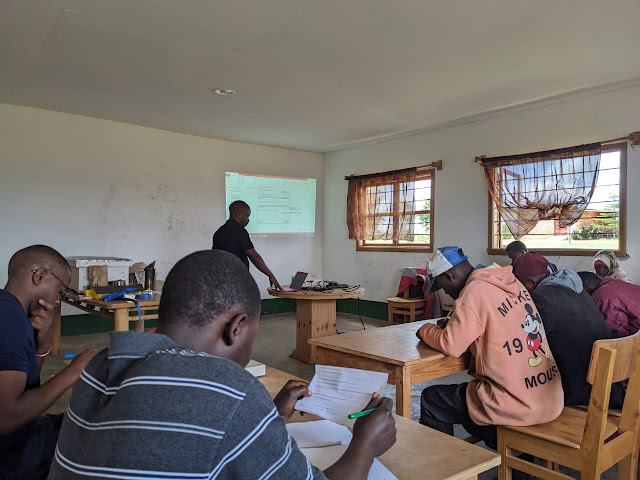By Valentine Oforo, Dodoma
AT least twenty four employees of the Ifunda- based Tam Tam Co Ltd have received special training on the importance of bees in pollination, thanks to Justin Natural Honey Enterprise.
Based in a popular Ifunda ward of Iringa rural district, the Tam Tam Co. Ltd majors on production of holticulture produce, especially apple farming, but the group faced a pollination problem, hence a need to receive such the training to impart them with the most necessary awareness bout the importance of bees in pollination, particularly in apple trees as well strawberries, among others.
Briefing this publication yesterday over the development, the training chief facilitator, Justin Elly Mgeni expressed that, among others, the timely training was tailored to help building awareness from the negative mindset about bees and beekeeping itself among the participated staff.
 |
"During the training, there was a key session of pre and Post test to all the included trainees, where by only 25 percent average was their understanding pertaining to pollination, while after the workshop, there was a big increase in understanding, up to 85 percent average," he expressed.
He detailed that, during the training the participants had useful chance to acquire the most needed knowledge over how to make a useful use of bees to support pollination of their plantations, apple trees as well as stroberies.
"We as extension service providers we adviced the farmers to grow their crops organically by applying bees as the great agents of pollination so as to help heighten their yields," Mgeni unveiled.
And he explained that, bees makes excellent pollinators because most of their life is spent collecting pollen, a source of protein that they feed to their developing offspring.
"The most important thing that bees do is pollinate. Pollination is needed for plants to reproduce, and so many plants depend on bees or other insects as pollinators,"
"When a bee collects nectar and pollen from the flower of a plant, some pollen from the stamens—the male reproductive organ of the flower—sticks to the hairs of her body. When she visits the next flower, some of this pollen is rubbed off onto the stigma, or tip of the pistil—the female reproductive organ of the flower. When this happens, fertilization is possible, and a fruit, carrying seeds, can develop," he detailed.
The one-day training was conducted on 28th of November 2023 in Ifunda ward by the Justin Natural Honey, the experienced enterprise in the sector for the rolling out of beekeeping extension services, beekeeping equipment supplies as well as marketing of all bee products located in Iringa town of Tanzania.




Comments
Post a Comment